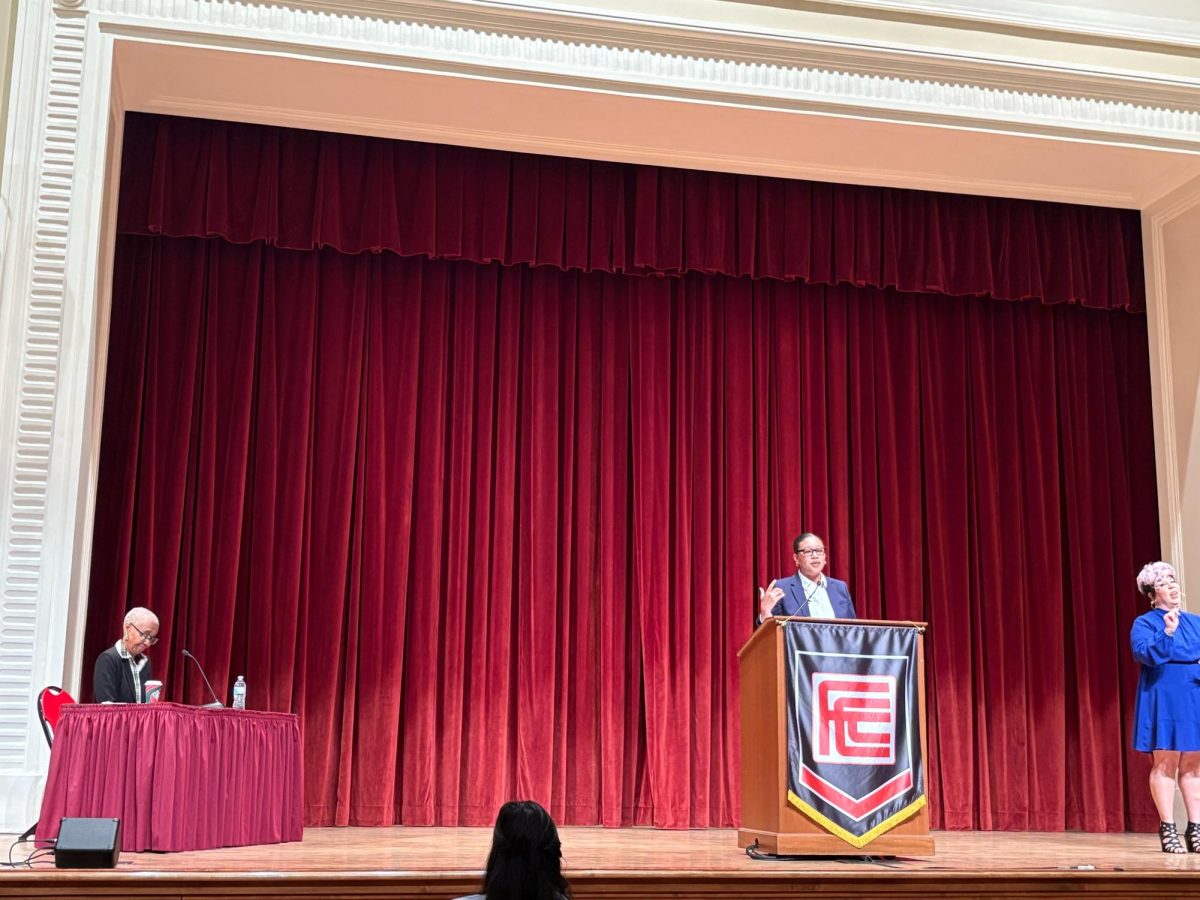The recent changes made to Fresno City College’s financial aid system will continue next year due to regulations instituted by the Department of Education and the California Community Colleges Chancellor’s Office.
Changes will affect the Board of Governor’s Fee Waiver, FAFSA verification codes and internal processing changes that will not affect students.
Adjustments made in previous years or during the current year affected Pell Grant, Cal Grant and Satisfactory Academic Policy requirements.
A 2.0 GPA requirement will be necessary for students to be eligible to receive the BOG fee waiver beginning in the fall semester of 2014 or 2015. Although the legislation for this change has been signed, the specific date has yet to be confirmed.
Undocumented students who qualify for AB-540 status will be eligible for Cal Grant awards along with the BOG fee waiver in the 2013-2014 year. This means AB-540 students will be able to receive financial aid at both California community colleges, where the BOG fee waiver is only offered, and at four-year institutions that offer Cal Grant awards.
Dr. Chris Villa, vice president of student services, said that these changes, along with previous modifications, are beneficial to both students and Fresno City College alike. “Students are expected to be more accountable… and partially it’s also about being more efficient with our resources,” he stated.
Another financial aid change involves FAFSA “verification codes” that may be required of students who are selected to verify their status in order to be approved for financial aid eligibility. These financial aid verification codes will be coded as V-1, V-2, V-3, V-4 and V-5. They should not negatively impact students and were established to create an organized process of verifying students’ status.
Many of these changes, along with former financial aid requirement changes, are due to California bill SB 1456 , or the Seymour-Campbell Student Success Act of 2012, which is a revised form of an older 1986 law. The Student Success Act’s purpose is to incentivize financial aid programs to urge students to reach their educational goals more quickly and with better results.
One of the changes that will directly impact students is the adjustment made to the Satisfactory Academic Progress requirements, also known as SAP. The changes to SAP first went into effect in the spring semester of 2013 and will stay the same for the following 2013-2014 year. This policy affects a student’s eligibility to receive financial aid. Inability to meet the academic requirements, first instituted in the 2012-2013 year, will directly curtail financial aid.
SAP now requires students to maintain a minimum of a 2.0 cumulative GPA. The “Pace of Progression,” aspect of SAP states that students must also complete (receive credit for) at least two-thirds or 67 percent of units attempted. This refers to the amount of classes a student successfully completes with a passing grade, with Withdrawal, Failing, Incomplete, Report Delay and No Credit grades counting towards these units. Transferrable units from other colleges will also be included in attempted units.
Included in the new SAP policy is completion of one’s academic program before reaching 150 percent of attempted units required. For an Associate of Arts degree, 60 units are usually required to fulfill one’s program. The 150 percent mark, or “cut-off” mark, for an AA or AS degree would then be 90 units before becoming disqualified from SAP eligibility.
The changes made to the Student Success Act have already been implemented, yet its immediate effect on students is not very obvious yet, probably because the students with poor academic status are still able to obtain financial aid. Both past, present and future changes by the Board of Education and the Chancellor’s Office will nudge students to either make better educational choices regarding the classes they take, the GPA they retain, and the time it takes them to finish their education, or risk losing financial aid eligibility.
“The state is really pushing success because there are all of these dollars being paid to schools and to students and the success rates and measurements just aren’t what they should be,” said Kira Tippens, financial aid director at FCC.
Tippens and Dr.Villa said students should be aware of these changes, especially those to the SAP policy, which will directly affect students and their ability to receive aid and finish their education at the SCCCD campuses or four-year colleges.
FCC will host a Financial Aid Awareness Week on April 22-25 to inform students of the upcoming changes to financial aid at all SCCCD campus sites. They will be discussing changes to the SAP policy as well as Cal Grants and other financial aid programs available to students.
For FCC student Maria Vargas, a business major, these changes mean more personal challenges for college students dependent of financial aid.
“I think other students who do get financial aid, it’s very frustrating because they depend on financial aid for their studies,” Vargas said. “People who don’t get financial aid don’t necessarily have money out of their pocket to put in, so they have to be forced to take fewer classes and units, thus extending their time here.”






